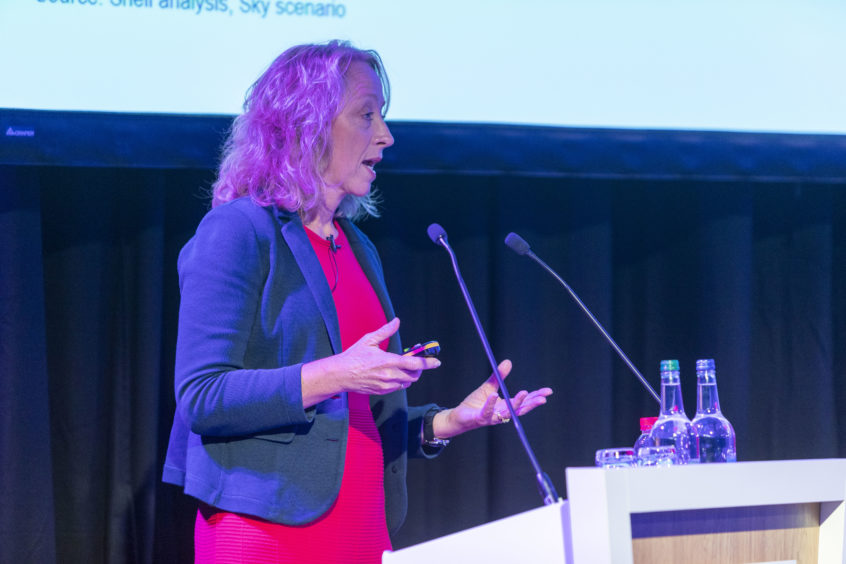
Shell’s energy transition manager, Joanna Coleman, confirmed last night that the oil and gas giant was “absolutely” targeting the North Sea for future big offshore wind development.
Ms Coleman was representing Shell at Offshore Europe in Aberdeen yesterday to outline her firm’s commitment to shift to net zero emissions in the UK.
She spoke about Shell’s work in developing carbon capture and storage in Peterhead, alongside its plans for hydrogen and electric vehicles.
But she added that while her firm has a “focus” on offshore wind deployment in the UK, Shell are also “fully committed” to oil and gas in the North Sea with seven final investment decisions last year.
Asked about the Scottish North Sea as a target market for offshore wind, Ms Coleman said: “We’ll need to look at what acreage the Crown Estate Scotland puts out to bid and decide which blocks we want to bid on.
“But we are certainly very keen to get into offshore wind here.”
She said the north-east of Scotland had “a huge amount of transferable skills” from the oil and gas sector, adding “there’s a lot of alignment with Shell’s capabilities to move into offshore wind.
“We’re also investing in future technologies, such as floating and kite wind.
“Shallow water is great when we’re talking the next few gigawatts (GW), but the UK needs 80GW at least, so when you start looking at that and you start looking at deeper water and higher wind power and availability, then floating makes much more sense.”
Ms Coleman confirmed that Shell was looking at “both” the fixed bottom offshore wind and floating offshore wind markets.
She added: “We’ve been operating and developing offshore wind in The Netherlands so the first steps in the UK is the next licensing round.
“We have looked both into the English and Scottish rounds – we see that as the opportunity, but no guarantees we’ll be successful, it will be a very competitive process.”
Asked why Shell was only now looking to move into the sector in Scotland, she said: “It’s taken us a bit of time to figure out where we want to play, what we’ve been keen to see is which of the markets will offer the greatest opportunity.
“In the UK we’ve had to wait for licencing rounds to get in.”
